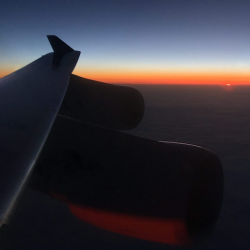Reviewing two books on financial progress.
“Rich Dad, Poor Dad”
R. T. Kiyosaki and S. L. Lechter
1997 (RDPD)
Available editions at Amazon
“The Richest Man in Babylon”
G. S. Clason
1926 (RMB)
Available editions at Amazon

What makes managing ones own financial success so difficult? Is it just so complicated and one doesn’t know where to start? Or is it rather easy but one doesn’t have the motivation to stick to ones own rules.
The two books follow the same basic principle:
Simple ideas and simple rules produce powerful outcomes.
RDPD starts with stating: do not work for money, let money do the work for you. Thinking about compound interest, obvious, isnt’t it? So start saving.
Then, RDPD wants you to increase your financial knowledge, your smartness with money, your finance IQ: learn the difference between assets and liabilities, between income and expenses.
RDPD no. 3: do your own business, start thinking about transactions of money and goods.
Having followed the RDPD’s rule no. 2, it should now not scare anybody to learn how capital-based incorporated can be run and how tax-paying can be limited to a minimal necessary amount.
The difference between the abstract entity of a company and the breathing person is that the first a) earns money, b) spends some of it and then pays taxes whereas the second a) earns money, b) pays taxes and then spends the rest of it.
Now it gets tricky: RDPD talks about inventing money, creating new opportunities for businesses and earning the difference between a small investment and a big reselling value.
Rule no. 6 of RDPD: work for learning. Learn how to manage your cashflow, how to organize your time, relationships and yourself and how to lead people (who then do the work for you).
Summing it up: Pay yourself first, always (that is: save some money of your income right after your paycheck which is not to be spend again). Buy a book on financials for starters today (and read it).
Looking at RMB we see even more concrete rules:
#1 save 10 percent of your income.
# 2 find new sources of income.
#3 control your expenses.
#4 invest your money, avoiding high risks, ask experts.
#5 plan your future income.
#6 when in debt, pay back 20 percent of your income (don’t forget #1 at the same time).
Just getting started…


